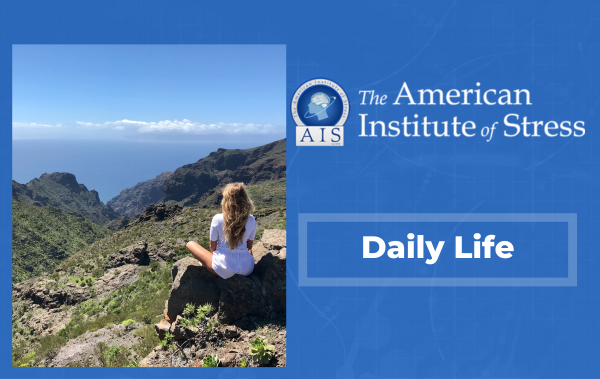3 quick and free ways to boost your mental health by getting back to nature.
KEY POINTS
- Research has identified nature-based, cost-free activities that promote well-being and reduce stress.
- Exposure to birdsongs, sunlight, and nature has been found to reduce common mental health symptoms.
- Even limited exposure to these forms of stress relief can bring about significant improvements in mood.

The American psyche has taken a battering over the past few years after being exposed to an unprecedented array of stressors, including a deadly pandemic, intense political divisiveness, mass shootings, racial injustices, and civil liberty distress (American Psychological Association’s Stress in America 2020). And it’s taken a heavy toll—not only mentally but also financially. According to The American Institute of Stress, the costs associated with such high levels of stress encompass an estimated $190 billion in annual health care costs for employees alone.
However, improved well-being and symptom reduction don’t necessarily need to be a financial burden for those seeking relief. For many of the most common symptoms, including depression, anxiety, and other stress-related problems, some of the most effective remedies are free and right outside your door. And research shows that you don’t have to spend a lot of time doing them to reap the rewards!
Here are three nature-based, cost-free stress relievers that have been shown to have significant therapeutic benefits without a major time commitment.
- “The Songbirds Are Singing.” Multiple studies have discovered that listening to songbirds not only improves overall mood and feelings of well-being but also reduces symptoms of anxiety, depression, and even paranoia (Ferraro, 2021; Hamound et al., 2022; Stobbe et.al., 2022). Improvements were found in individuals with and without a history of mental health symptoms, and at least one study found that the benefits lasted beyond the immediate exposure to birdsong (Hamound, 2022). Furthermore, benefits can be produced in as few as 7 to 10 minutes of exposure to the songs (Ferraro et al., 2021).
- “Let the Sunshine In.” Short-term exposure to natural sunlight, especially early morning sun, has been found to have a multitude of physical and mental health benefits, including improved circadian rhythms, enhanced mood, reduced depressive symptoms, better bone health, reduced inflammation, and stronger immunity. Importantly, only a small amount of sun exposure is needed to reap these benefits (10 to 30 minutes a day is recommended, depending on individual factors such as age, health, and skin tone).
- “Walk on the Wild Side.” Walking is a well-established way to maintain a healthy active lifestyle and reduce stress. However, a nature walk has the added benefits of exposure to other natural stress relievers, such as fresh air, green spaces, sunlight, and relaxing sights and sounds. A study by Bratman et al. (2015) found that participants who walked in a natural area for 90 minutes as opposed to a high-traffic urban area were significantly less likely to ruminate, a symptom associated with depression, anxiety, and other mental health problems. Another study found that the simple act of being outside (walking, sitting, or doing both) for as few as 20 minutes a day three days a week produced significantly lower cortisol levels, a hormone directly related to stress (Hunter, Gillespie, & Chen, 2019).
Of course, as with any outdoor activities, care needs to be taken to avoid negative effects. This includes the use of proper sun exposure protection (e.g., short-term exposure; using high-SPF sunscreen; wearing hats, eye protection, and/or long sleeves when needed; ample hydration).
Lastly, for those music aficionados, you’ve probably noticed that the three stress relief headings I’ve used in this post are song titles or lyrics, hyperlinked to their respective songs. Why? Because music has long been found to have significant therapeutic benefits, including helping to reduce symptoms related to depression, anxiety, pain, stress, and possibly even Alzheimer’s disease (Novotney, 2013). So, although not nature-based, I’ve thrown music into the mix because music is all around us—usually for free—if we take the time to stop for a moment, listen, and simply say, “Thank You for the Music.”
References
American Psychological Association.Stress in America 2022: Concerned for the future, beset by inflation. 2022.
Bratman, et al. (2015). Nature experience reduces rumination and subgenual prefrontal cortex activation. Proceedings of the National Academy of Science. 112(28), 8567–8572.
Chalmin-Pui, LS, Griffiths, A, Roe, J, Heaton, T, & Cameron, R. (2021). Why garden? – Attitudes and the perceived health benefits of home gardening. Cities, Volume 112, 103118.
Original post Psychology Today





